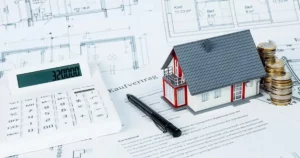
If you are a property owner or investor, it is essential to understand the tax implications of selling real estate. One key factor to consider is the potential for unrecaptured Section 1250 gain. This article will explore what unrecaptured Section 1250 gain is, how it is calculated, and how it can impact your taxes.
What is Unrecaptured Section 1250 Gain?
Unrecaptured Section 1250 gain is a type of capital gain that occurs when you sell depreciable real estate. Such as a commercial building, that has been held for longer than one year. This type of gain is “unrecaptured” because it is not eligible for the lower capital gains tax rate that typically applies to long-term capital gains.
How is Unrecaptured Section 1250 Gain Calculated?
The amount of unrecaptured Section 1250 gain is calculated by taking the lesser of two amounts: the revenue from the sale of the property or the amount of depreciation that was claimed on the property. The difference between the two amounts is the unrecaptured Section 1250 gain.
For example, let’s say you sell a commercial building for $500,000 that you purchased for $300,000 and depreciated $100,000. The gain from the sale is $200,000 ($500,000 – $300,000). The amount of depreciation claimed on the property is $100,000. Therefore, the unrecaptured Section 1250 gain is $100,000 ($200,000 – $100,000).
How is Unrecaptured Section 1250 Gain Taxed?
Unrecaptured Section 1250 gain is taxed as ordinary income, not as long-term capital gains. The tax rate on unrecaptured Section 1250 gains is capped at 25%, which is higher than the current long-term capital gains tax rate of 20%.
How Can You Minimize Unrecaptured Section 1250 Gain?
There are several strategies you can use to minimize unrecaptured Section 1250 gain. One common strategy is to utilize a 1031 exchange, also known as a like-kind exchange. Which allows you to defer paying taxes on the sale of a property by reinvesting the proceeds into a new property.
Another strategy is to take advantage of cost segregation. Which involves breaking down the cost of property into different asset classes that can be depreciated at different rates. By accelerating depreciation on certain assets, you may be able to reduce the amount of unrecaptured Section 1250 gain when you sell the property.
What Happens if You Have a Net Loss?
If you sell a depreciable property for less than its adjusted basis, you will have a net loss instead of a gain. In this case, you cannot have unrecaptured Section 1250 gain. However, you may still be able to take advantage of a tax deduction for the loss.
What Happens if You Sell Property That Was Depreciated Over 39 Years?
If you sell property that was depreciated over 39 years, such as nonresidential real property. The unrecaptured Section 1250 gain is taxed at a maximum rate of 25%. However, if you sell a residential rental property, the unrecaptured Section 1250 gain is taxed at a maximum rate of 25% or 28%, depending on your tax bracket.
What Are the Consequences of Failing to Account for Unrecaptured Section 1250 Gain?
If you fail to account for unrecaptured Section 1250 gain when you sell a depreciable property, you may face penalties and interest on any tax owed. In addition, failing to account for unrecaptured Section 1250 gain can result in an audit by the Internal Revenue Service (IRS), which can be a time-consuming and stressful process.
Final Thoughts
Unrecaptured Section 1250 gain is an important factor to consider when selling depreciable real estate. Understanding how it is calculated and taxed can help you make informed decisions about your investments and minimize your tax liability. Utilizing strategies like a 1031 exchange or cost segregation can also help you minimize unrecaptured Section 1250 gain.



